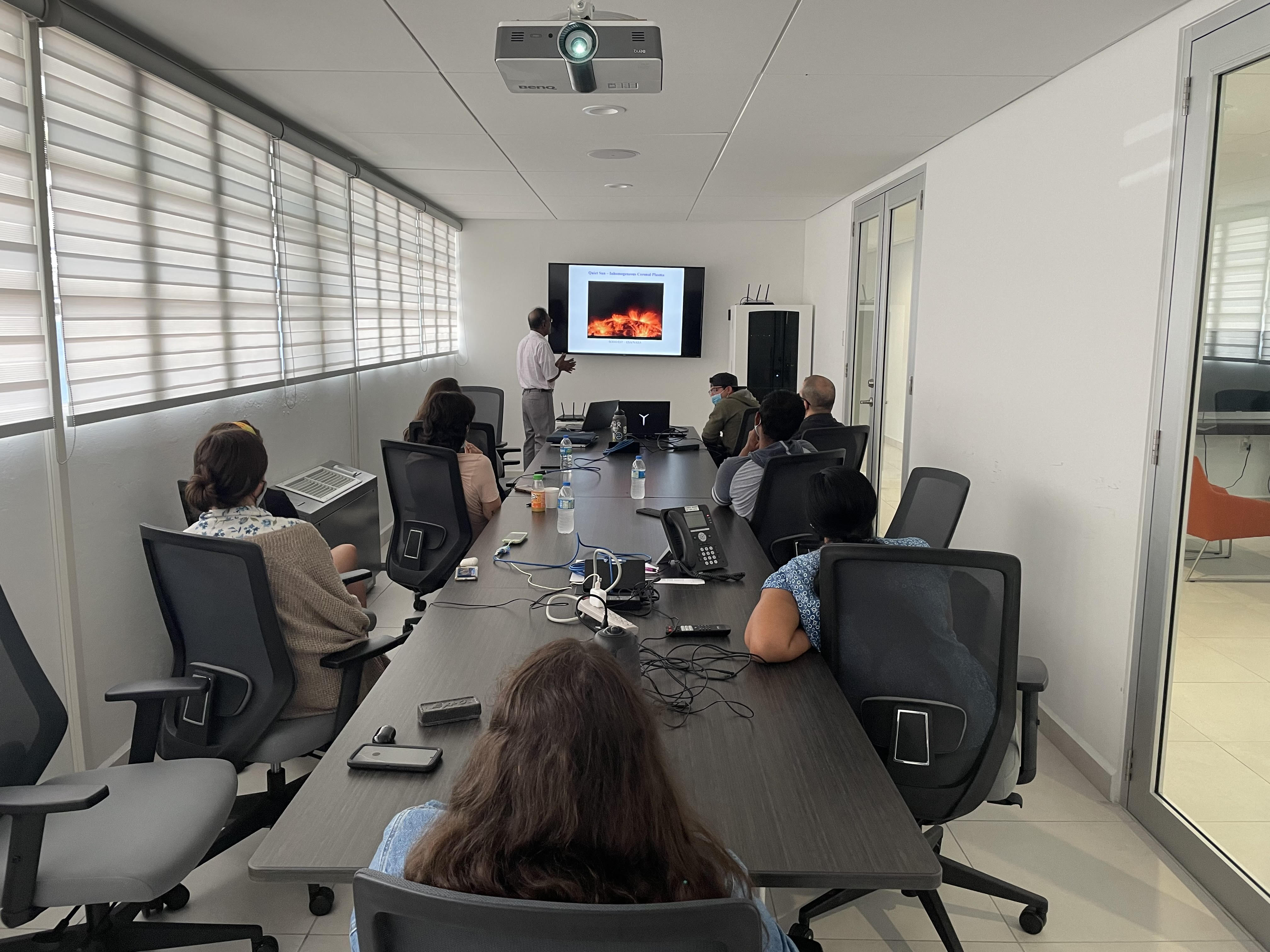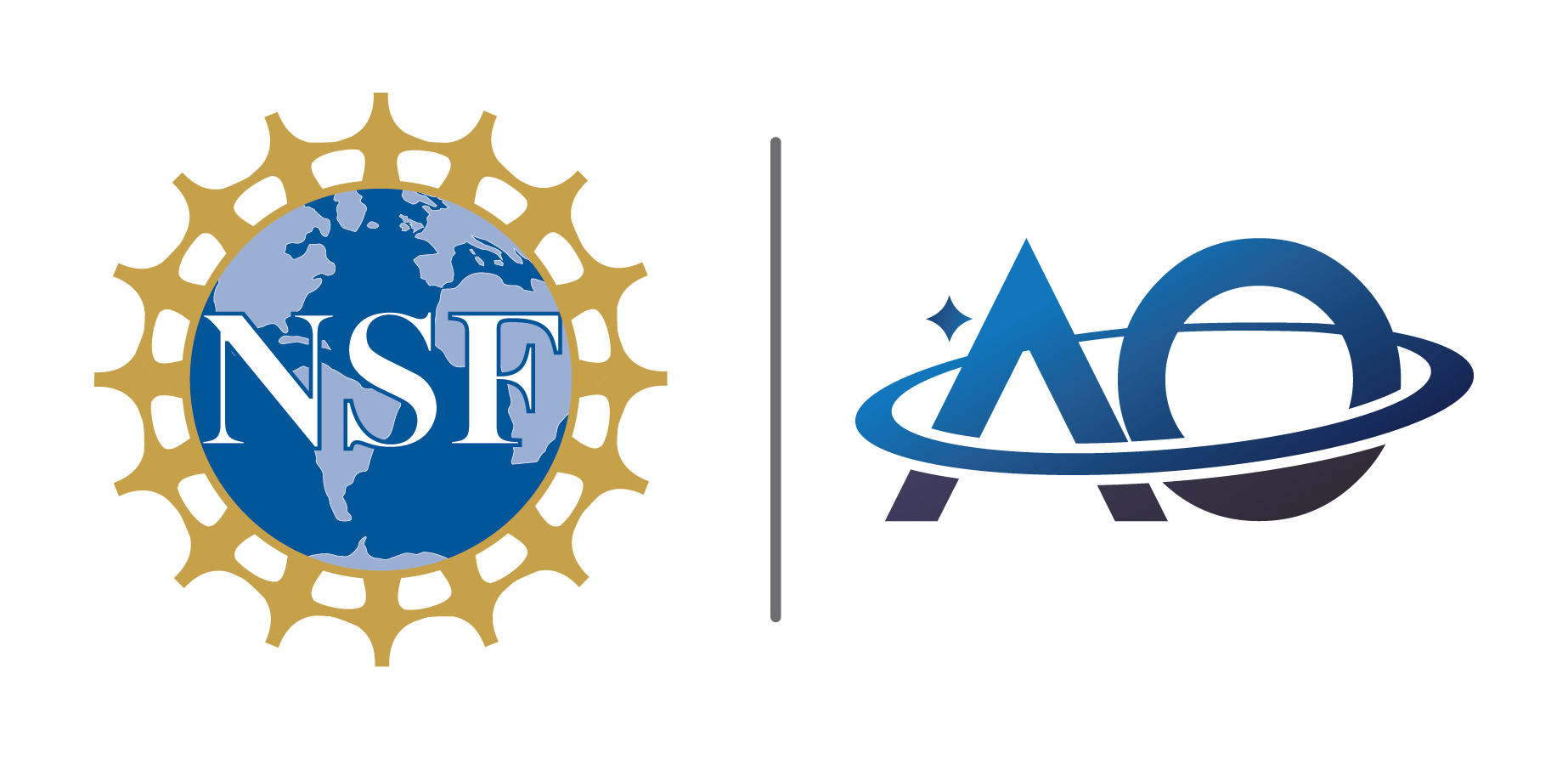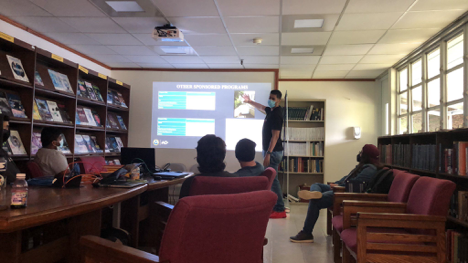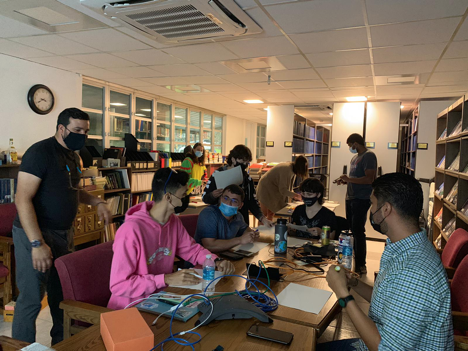- Leter from Dr. Julie Brisset (Principal Investigator of the Arecibo Observatory)13 Sep, 2022
- Arecibo Deputy Principal Scientist to Explore the Cosmos with the JWST02 Sep, 2022
- Letter from the Director22 Aug, 2022
- Piercing through the Clouds of Venus with Arecibo Radar17 Aug, 2022
- Summer greetings from the Facilities and Operations Team!17 Aug, 2022
- Arecibo Observatory at the Small Bodies Assessment Group12 Aug, 2022
- Meet the 2022 Arecibo Observatory REU students!11 Aug, 2022
- Meet Luis R. Rivera Gabriel, Research Intern in the Planetary Radar Group09 Aug, 2022
- Updates from the 2022 CEDAR Workshop in Austin, TX09 Aug, 2022
- Insights into the AAS Conference from AO Analyst Anna McGilvray08 Aug, 2022
- American Astronomical Society’s 240th Meeting: Plenary Lecture Building the Future of Radio Science with the Arecibo Observatory by Dr. Héctor Arce. 28 Jul, 2022
- TRENDS 202227 Jul, 2022
- Advancing IDEA in Planetary Science 27 Jul, 2022
- The Arecibo Observatory: An Engine for Science and Scientists in Puerto Rico and Beyond27 Jul, 2022
- Cryogenic Frontend work for the 12m telescope entering phase II21 Jul, 2022
- Remote Optical Facility Updates20 Jul, 2022
The Arecibo Observatory: Current and Future Operations of the Facility
Byadmin21 July 2021 Management

| Management |
A message from Mr. Ray Lugo, Director of the Florida Space Institute
 It has been nearly one year since telescope observations at the Arecibo Observatory were halted due to the unfortunate loss of the auxiliary cable that supported the telescope’s iconic platform, ultimately resulting in its collapse on December 1, 2020.
It has been nearly one year since telescope observations at the Arecibo Observatory were halted due to the unfortunate loss of the auxiliary cable that supported the telescope’s iconic platform, ultimately resulting in its collapse on December 1, 2020.
Despite the difficult year reconciling with the loss of the telescope and reframing of near- and long-term future plans for the observatory, while simultaneously managing the COVID-19 pandemic, the resiliency, productivity, and teamwork of the AO staff have remained a bright beacon of the legacy that the Arecibo Observatory has always embodied.
I would like to extend a heartfelt and sincere message of gratitude to our AO staff who have continued to perform at the highest caliber throughout this challenging year and to the greater AO community for their persistent engagement and support.
As we prepare for the future of the observatory, on-site operations are slowly returning to normal. Staff who have been working from home are now returning to their newly remodeled offices and community spaces, with a full on-site re-opening in the Fall.
 Newly remodeled Co-Working Office Space at Building #2, 3rd Floor
Newly remodeled Co-Working Office Space at Building #2, 3rd Floor
Our staff have been diligently working toward the re-opening of the site for general visitors. In the meantime, our staff have established strong alliances with science museums and local communities across the island, including the EcoExploratorio: Museo de Ciencias de Puerto Rico and the Centro Criollo de Ciencia y Tecnología del Caribe (C3Tec). Looking into the future, we look forward to the grand re-opening of the Ángel Ramos Foundation Science & Visitor Center within the next few months.
We are very happy to welcome the 2021 Research Experience for Undergraduates and Teachers (REUT) participants to the observatory, who are currently staying on-site and working with our dedicated science and engineering staff through the summer. Other Visiting Scientists to the observatory can be accommodated with advance notice and approval by NSF. The Visiting Scientist Quarters (VSQ) are currently available.
Our operations staff, partnered with the NSF, D. H. Griffin and Thornton Tomasetti, have continued to make excellent progress towards the safe and environmentally-conscious clean-up of the site. The clean-up also includes the exceptional work done by the Arecibo Salvage Survey Committee to preserve historic components of the telescope. All damaged panels from on the primary reflector dish have been removed. We have “sawed” off the top of Tower 8, and expect to complete the same task for Tower 12 by early August, followed by Tower 4 in the Fall. We are actively clearing an access path to portions of Tower 4 that remain on a steep slope above the Tanama River. The removal effort is likely a 10 day effort, expected to be completed by the end of July. We are also finalizing the engineering effort to repair the roof of the Learning Center.
The AO team continues to work with the community to advance the return of the extraordinary science capabilities of the Arecibo Observatory. Following the NSF Arecibo Observatory Options Workshop, we are working with partners to frame additional whitepapers to be written by internal staff and the larger science community to support advanced concepts for the Next Generation Arecibo Telescope (NGAT) and other evolved NGAT concepts. We are also continuing discussions with U.S. legislators about the far-reaching possibilities for science and discovery that would be enabled by NGAT.
In the meantime, we are extremely excited about the ongoing AO Science Now endeavours occurring at the observatory. These include currently active science operations of the LIDAR and our optical facilities and the continued analysis of the extensive planetary, astronomy, and SAS datasets collected over the past 5 decades. With the collaboration between the AO operations and science groups, new projects will be coming online in the near-future such as CARLA, PRISMA, and the use of the 12 meter telescope, which is in the commissioning stage now . Our scientists and AO users have continued to publish groundbreaking results in prestigious scientific journals and support a significant number of conferences and workshops throughout the year, as can be seen in this and previous Newsletters.
We, at the Arecibo Observatory, know that we are not alone in our efforts to define a roadmap for the near- and long-term future for the fields of Astronomy, Planetary, and Space and Atmospheric Sciences, and how the established expertise and facilities in Puerto Rico can continue to lead in these areas. We are working alongside the local Puerto Rican community, the University of Puerto Rico, the Arecibo Science Advocacy Partnership (ASAP), and the newly formed Coalition for a New Arecibo Observatory, which consists of scientists, students, and academics, to explore options for the future of our facility that are inclusive and considerate of the diverse interests and needs of our broad AO community.
As we work together to reshape the next few years for the Arecibo Observatory, its long-term prosperous future is made possible only by the fierce dedication and hard work already shown by so many within our AO community and by the truly extraordinary science potential that we know is harnessed by the Arecibo Observatory.
-- Web post written by Ray Lugo
|
Arecibo Media Contact |
Director of the Florida Space Institute |
Keywords: observatory, arecibo, facilities, improvement, workplace


 North VSQ's Pool Area
North VSQ's Pool Area
 REU Students at the Library
REU Students at the Library
 REU Students at the Library
REU Students at the Library